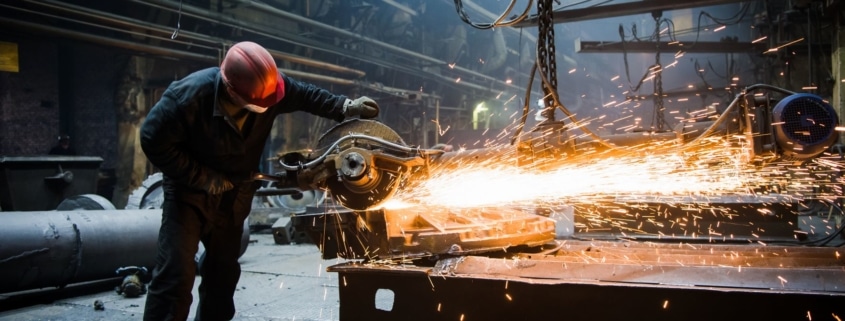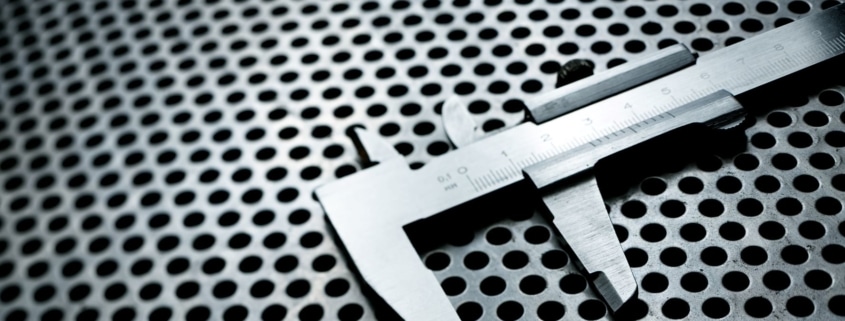When choosing a sheet metal supplier for your business or projects, there are many factors to consider. Whether you’re starting fresh or you have a few companies you’ve narrowed down your search to, navigating cost, convenience, and experience are all good ways to get exactly the service you need and that your business reputation demands.
Regardless of the industry you are in, finding quality vendors for your sheet metal supply can be the difference between an amazing product vs. a mediocre one. All sheet metal fabrication companies are not created equal, so let’s go over what qualities to look for when you start evaluating vendors.
Why Sheet Metal is an Industry Must
Sheet metal is one of the most adaptable materials in the manufacturing industry and it has become one of the most important materials in our age of industry. Metals such as steel, architectural zinc, aluminum, brass, copper, and titanium are traditionally used to make sheet metal. The right metal fabrication company will function as the extension of your company and provide results that not only deliver in quality, but impress clients and industry equals as well.
How to Choose the Right Supplier
Let’s take a look at the factors you’ll need to consider when selecting a metal fabrication company for your next big project.
1. Experience
One of the most critical factors to look for, experience not only in the industry but with projects like yours is also essential. Working with sheet metal fabricators who lack experience may also present issues regarding knowledge in the local market, the metals you need for your application, or lack of quality advice that could help you in the long run on future projects.
Experienced staff who are knowledgeable in the field and about the metals they sell is necessary when making important decisions for your company or personal business. Find a sheet metal supplier that has worked on projects similar to yours and can give you the expertise you deserve.
2. Quality
No company worth their mettle (and metal) will ever push you to compromise quality standards to save money or time on their end, while making it look like it benefits you. Make sure the company’s product passes regulatory standards as well as all in-house quality standards that you have set.
Whether it is a small or an expansive project, you can’t compromise on quality standards, full stop. The metal fabricator you choose should be aware of any and all quality standards and also be prepared to deliver quality work that will pass all levels of inspection.
3. Competitive Prices
Hiring a company that offers competitive pricing is very important to your own bottom line, as sheet metal may be a large portion of your project cost. So not only do you want quality products, but getting them at the best prices possible without sacrificing said quality is essential.
Remember, lowest is not always best and while competitive pricing is a large factor in choosing your vendor, it should never be the only factor. Low price does not mean the same thing as good value. Some vendors may charge more, but have the technology, experience and quality to back up their prices.
4. State of the Art Equipment
Cutting-edge manufacturing and metal design equipment should definitely factor into your decision when choosing your supplier. This can include anything from storing materials to getting the final product ready for delivery. Having top quality equipment means the job will get done right with minimal delays and yield a better product at the end of the day. Always make sure your fabrication company can handle the size of your jobs and have the technology and experience you require.
5. Works With Your Timeline
It is important to have an implemented timeline for your project before even setting out to find a supplier. Once you have the planning finished and the end date for completion of work is ready, then you can give your vendor the timeline they need to finish the job and give you a fast turnaround.
Downfalls of Using the Wrong Sheet Metal Fabrication Vendor
Choosing the wrong vendor can lead to the obvious pitfalls, such as missed deadlines and poor quality, it can also mean losing confidence in your business from your clients. You can also find yourself having to push back projects, losing valuable time and money you can never get back. Making sure you pick a company with great customer service, the best tech and high quality products is a surefire way to see your projects and business excel.
Rely on MetalTech Global for Your Sheet Metal Needs
Building materials must be exactly suited to their intended purpose and physical environment, as well as your budget and design specifications.
MetalTech Global is able to create custom perforated patterns and shapes with our millimeter accurate CNC machine and other latest fabrication technology. With these tools, our architect support staff can realize an unlimited variety of folded and perforated panel designs.
We produce custom soffit systems, wall screens, cassettes, and panel inserts with any of our architectural metals. Perforation provides architects a way to create unique designs without restraint. Choose one of our standard patterns or customize a pattern specific for your design.
Our team takes a personalized approach to provide you with custom alternatives that are tailored to your specific requirements. We can make perforated plates, sheets, panels, and coils to your exact specifications.
Contact us today for architectural metals, coils, panels, metal fabrication and cutting, folding, and more!



